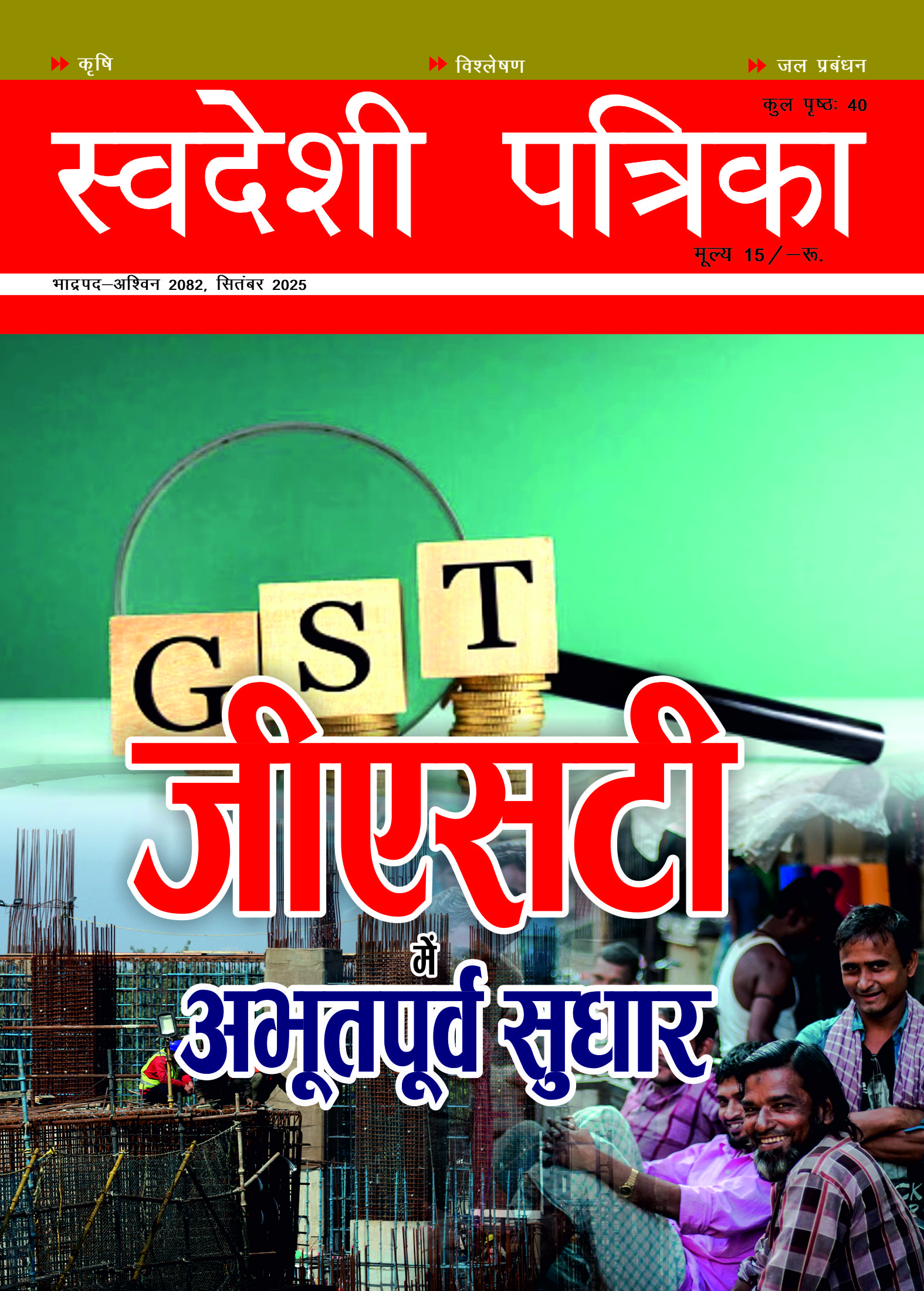
National Council (Kullu-Himachal Pradesh), 6-7 June, 2009
National Council (Kullu-Himachal Pradesh), 6-7 June, 2009
RESOLUTION No.- 3
Swadeshi Agenda for the Seventh WTO ministerial conference in Geneva, Switzerland
Doha agenda is in deadlock since the 4th Ministerial Conference held in November 2001. Several subsequent rounds of Mini Ministerial and Ministerial Conferences have failed to resolve the contentious issues on agriculture and for lack of determination to reduce the trade distorting subsidies by the developed countries and for their illegitimate demand for market access by reduction in tariff on agricultural and industrial goods. The nomenclature of Doha Development Agenda is misleading and lacks the sprit of development of the rural poor and the farmers of the developing counties. Under such circumstances of growing dissatisfaction and the lack of trust on the WTO functioning that the seventh WTO ministerial conference has been called on 30th November to 2nd December 2009 in Geneva, Switzerland.
The seventh session of the Ministerial Conference has two distinctive features as per the announcement made by the chairman of the General Council on 26th May 2009.
Firstly it has been called after a gap of four years as against the mandatory provision of article IV of the WTO to hold Ministerial Conference within two years. The fifth and the sixth conferences were held in Cancun in 2003 and in Hong Kong in 2005 within the mandatory time limit despite differences on carrying out the disputed Doha Development Agenda.
Secondly the Seventh Ministerial Conference has been scheduled only for three days as against the general practice of 5-6 days for a meaningful discussion and negotiations. The chairman of the General Council has emphasized on a new terminology 'FIT' which implies full participation, inclusiveness and transparency as if these principles were missing in earlier Ministerial Conferences, where decisions were taken through Green Room diplomacy and brinkmanship. The challenges before the Seventh Ministerial Conference is the global meltdown and economic recession. The agenda of this conference has already been set at the G-20 meeting held in London on 2nd April 2009. Although there is a talk to restrain the protectionism which was one of the reason for the prolonged Great Depression of 1929. It is observed that the developed countries have already started the process of protectionism for import of goods and services from the developing countries. It is a fact that the present economic crisis is the result of consumerism, greed, high level of leveraging by the financial sector and WTO induced globalisation based on laissez faire. It is also a fact that there has been unbalanced growth, increase in inequality and poverty over past several years of globalisation. Millions of farmers have been subject to death and suicide due to increase in the cost of inputs and non-remunerative farm prices and the food security is going to be the major concern in the coming decades. The world farming communality has been the biggest looser as about 80 percent of the world population derive their livelihood support from agriculture but this sector shares only 2 percent of the global GDP. The fallacy of the present global economic system is that the manufacturing sector shares 25 percent and the service sector shares 73 percent of the global GDP as against the total population dependency of about 20 percent only. There is a need to remove these imbalances by equity and justice to the farm sector.
SJM National Council therefore demands:-
1. Agreement on agriculture be dismantled and agriculture should be dropped from WTO negotiation.
2. All existing agenda and implementation issues as mentioned in the Uruguay Rounds should be the first priority and no new agenda should be discussed before completing the existing agenda. There is also need to renegotiate and redefine the existing agreements on TRIPS and other issues on the principle of special and deferential treatment to developing countries.
3. Services agreements should include free movement of labour and the only consideration should be national security and economic needs test should be scrapped.
4. Mass Campaign shall be undertaken all over the country on the Swadeshi Agenda for WTO ministerial conference and a common approach paper would be submitted to the Director General of WTO, Dr. Pascal Lamy and to the Prime Minister of India.
5. A networking would be developed with the like minded civil societies all over the world and a meeting would be organised of all such like minded people and organisation at the WTO venue in Geneva with SJM representatives for a effective change in WTO agenda.


